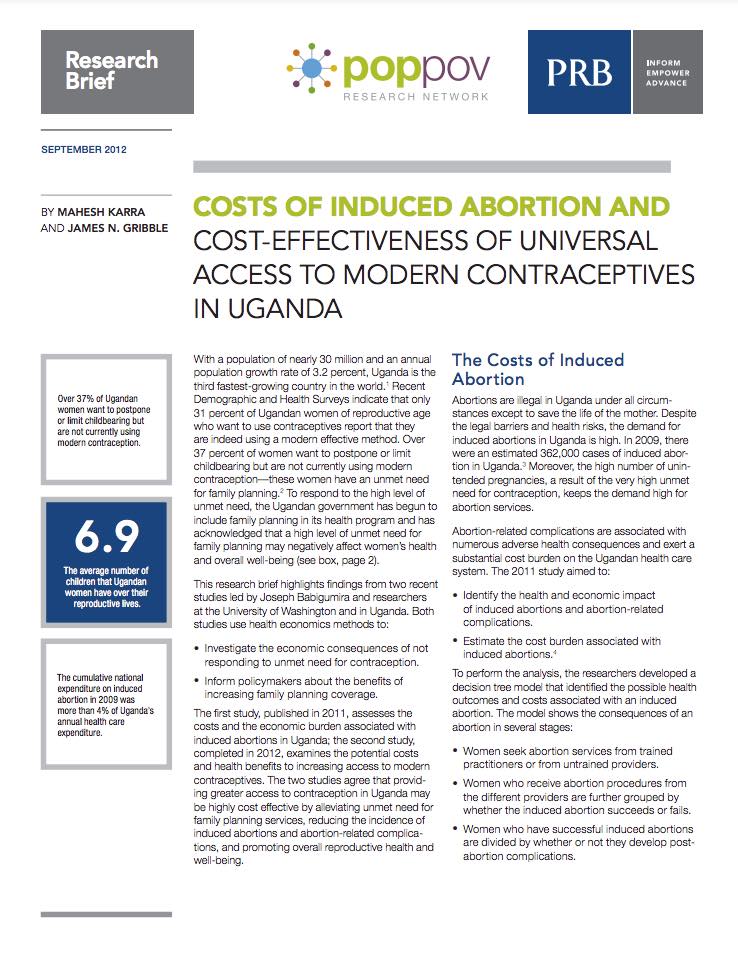
Costs of Induced Abortion and Cost-Effectiveness of Universal Access to Modern Contraceptives in Uganda
(September 2012) With a population of nearly 30 million and an annual population growth rate of 3.2 percent, Uganda is the third fastest-growing country in the world. Recent Demographic and Health Surveys indicate that only 31 percent of Ugandan women of reproductive age who want to use contraceptives report that they are indeed using a modern effective method. Over 37 percent of women want to postpone or limit childbearing but are not currently using modern contraception—these women have an unmet need for family planning. To respond to the high level of unmet need, the Ugandan government has begun to include family planning in its health program and has acknowledged that a high level of unmet need for family planning may negatively affect women’s health and overall well-being.
This PopPov network research brief highlights findings from two recent studies led by Joseph Babigumira and researchers at the University of Washington and in Uganda. Both studies use health economics methods to:
- Investigate the economic consequences of not responding to unmet need for contraception.
- Inform policymakers about the benefits of increasing family planning coverage.
The PopPov Network makes research grants, supports dissertation fellows, sponsors meetings and workshops, and now provides an online space for the poppov research community. The goal of the network is to highlight the needs of the researchers, highlight state of the art methodologies, encourage and teach the next generation of researchers, and share ideas and communicate findings among the research community.
Mahesh Karra was a policy analyst in International Programs at PRB. James N. Gribble is vice president of International Programs at PRB.

 ">
">